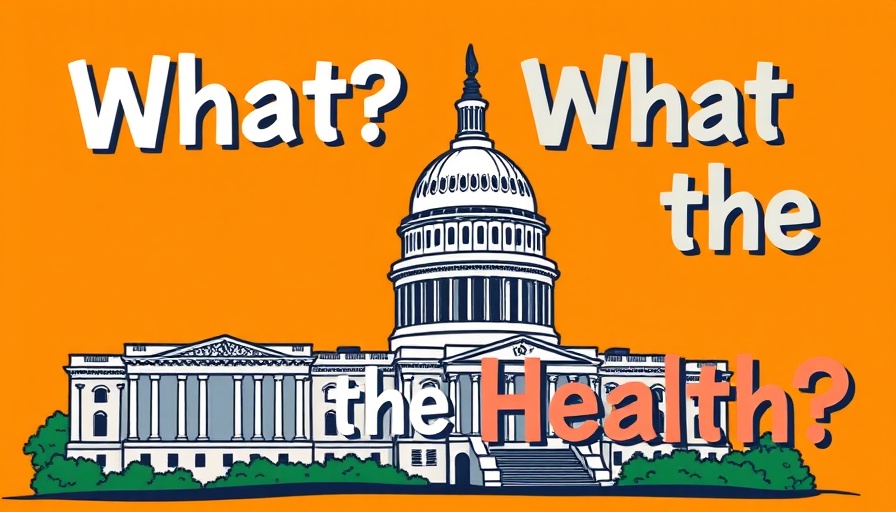
Senate's Recent Action: A Temporary Win for PEPFAR
The Senate's recent passage of a bill has sparked notable discussions within the political landscape, particularly concerning international health initiatives. By deciding not to include President Trump’s initial proposal to cut funding for the President’s Emergency Plan for AIDS Relief (PEPFAR), lawmakers restored a significant source of support for global health interventions, essentially preserving $9 billion intended for foreign aid and related programs. This decision reflects the enduring bipartisan support for PEPFAR, a program that has dramatically improved health outcomes in various countries affected by HIV/AIDS since its inception.
The Bigger Picture: Health Policy Challenges Ahead
While advocates celebrated the Senate's decision to spare PEPFAR, the road ahead presents myriad challenges. The upcoming Congress will have to navigate complex appropriations processes to fund various government initiatives, particularly health expenditures. Achieving bipartisan agreement will be critical, as the requirement for 60 votes in the Senate underscores the need for collaboration across party lines. This looming challenge puts into perspective the fragility of not just health funding but also the broader spectrum of the U.S. government’s public health strategy.
Implications of Abortion Rulings on Health Access
The panel discussion also delved into the recent ruling by a federal appeals court that allows West Virginia to ban the abortion pill mifepristone, igniting discussions about health autonomy and the implications for access to necessary health interventions. If upheld by the Supreme Court, this ruling could pave the way for states to further restrict access to other FDA-approved medications, raising alarms among health advocates who fear these laws may undermine established reproductive rights. Health professionals warn that such restrictions could have ripple effects, impacting not only individual health outcomes but also public perceptions of federal health agencies and their regulatory decisions.
Future Trends in Health Policy and Spending
With the Trump administration's plans to waste rather than distribute surplus food, medical supplies, and contraceptives intended for foreign aid, there is a growing concern about the implications of this decision on international trust in U.S. aid. The dismantling of vital infrastructure poses risks not only to vulnerable populations but also to diplomatic relations. As the U.S. grapples with internal health funding debates, the outcomes of these discussions will inevitably shape global partnerships and investment in health strategies.
Cultural and Political Crossroads
As health policies and funding decisions emerge from complex cultural and political frameworks, understanding and engaging with diverse perspectives will be essential for navigating these waters. There seems to be an apparent dichotomy between the social responsibility articulated by health advocates and the fiscal austerity highlighted by certain political factions. Engaging in these debates will demand a nuanced understanding of health economics, political rhetoric, and the very real human experiences shaped by policy changes.
Informed Decisions Ahead
As a CEO or business professional in the tech-driven landscape, navigating the intersections between health policy, technology, and public perception can dictate the success of health-related innovations. Understanding these trends provides a strategic edge in shaping corporate investments and developing responsive solutions to emerging health crises. An informed viewpoint on legislative actions like the preservation of PEPFAR funding may serve as a case study in aligning corporate social responsibility with business models.
Engagement in Health Discourse
This week's podcast episode emphasizes the critical need for professionals to remain engaged with significant health policy discussions. By staying informed and participating in these dialogues, business leaders can advocate for health initiatives that benefit not only their organizations but also the broader community. Cultivating awareness of the health landscape is integral to both social responsibility and bottom-line success.
As you consider these insights, think about how the evolving health policy landscape could impact your organization and the industries you work in. Awareness and active engagement can be powerful catalysts for positive change.
 Add Row
Add Row  Add
Add 




Write A Comment